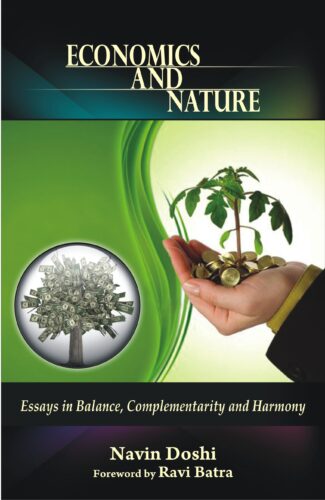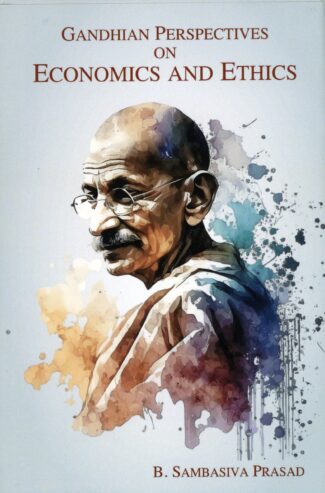Showing all 3 results

ßEconomics and Natureû is a versatile attempt at analysing the present-day global economic scenario in the backdrop of time-tested economic theories and ancient thought. While focusing on issues that have resulted in economic quagmire, the book attempts to provide veritable solutions.
The book, adopting a fresh approach, addresses the economic travails in the contemporary global scenario and presents a search for solutions to the economic quagmire based on arguments relying on common sense and understanding of human nature. It analyses the views of thinkers and economists including Kautilya of the ancient India, ideas of John Maynard Keynes and Milton Friedman, and other highly acclaimed economic theories to discuss ideal economic concepts. Looking at the past for economic wisdom and taking clue from the laws of nature which ensures that imbalances do not persist for long, the articles in the volume deal with matters of deep concern in the present-day global economic scenario and ways to address them. The volume, informative, interesting and insightful, is bound to be useful to economists as well as general readers.

ßEconomics and Natureû is a versatile attempt at analysing the present-day global economic scenario in the backdrop of time-tested economic theories and ancient thought. While focusing on issues that have resulted in economic quagmire, the book attempts to provide veritable solutions.
The book, adopting a fresh approach, addresses the economic travails in the contemporary global scenario and presents a search for solutions to the economic quagmire based on arguments relying on common sense and understanding of human nature. It analyses the views of thinkers and economists including Kautilya of the ancient India, ideas of John Maynard Keynes and Milton Friedman, and other highly acclaimed economic theories to discuss ideal economic concepts. Looking at the past for economic wisdom and taking clue from the laws of nature which ensures that imbalances do not persist for long, the articles in the volume deal with matters of deep concern in the present-day global economic scenario and ways to address them. The volume, informative, interesting and insightful, is bound to be useful to economists as well as general readers.

The book explores the ethical foundations of Gandhian economic order and discusses their relevance to the modern times. It also compares Gandhian economic ideals with those of classical thinkers and the modern scholars. The economic ideals and practices of Gandhi are centred round two fundamental principles – truth and non-violence. Gandhian thought, economics and ethics go together.
The book explores the ethical foundations of Gandhian economic order and discusses their relevance to the modern times. It also aims at comparing Gandhian economic ideals with those of classical thinkers like Adam Smith, John Ruskin and Karl Marx, and the modern scholars like Kumarappa, Schumacher, Amartya Sen and John Rawls. The Indian and Western influences, along with British imperialism, have shaped Gandhian economic philosophy. The economic ideals and practices of Gandhi are centred round two fundamental principles – truth and non-violence. Gandhian thought, economics and ethics go together. There is no distinction between them. The relation between economics and ethics works both ways. Gandhian economics is service economy. It is based upon selfless service and altruism. It transforms economics from positive science to normative science. Gandhian economics is not pure economics. It is holistic in nature. To Gandhi, economic questions cannot be isolated. They are interrelated with social, political and religious matters. Gandhian economics is man centred, not money centred. The notions of swaraj, svadeshi, bread labour, aparigraha, trusteeship, sarvodaya, constructive programme, decentralized economy, critique of industrial civilization and economy of permanence are discussed, under the backdrop of Gandhian economics. Finally, an estimate of Gandhian economic order is presented. Economic transformation is possible when there is a change from economic man to Gandhian man; if not, Gandhi’s dream of economic order will remain as a pipedream.
| There are no products |